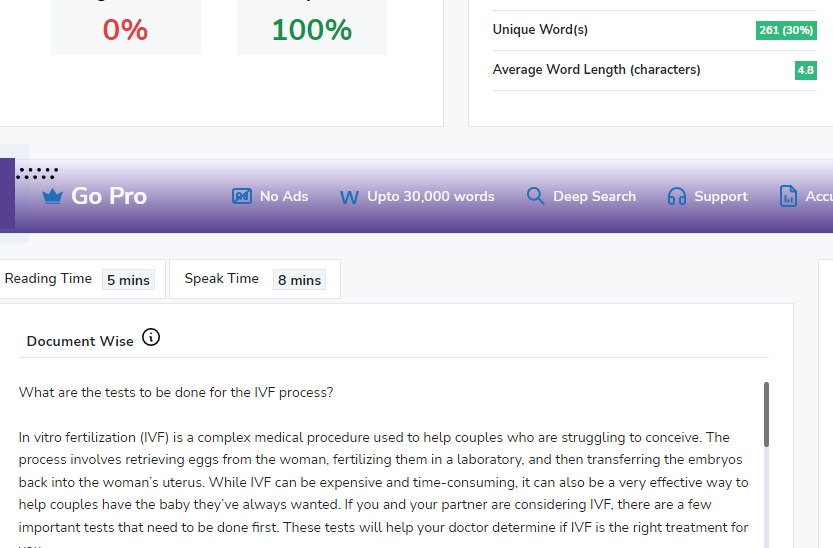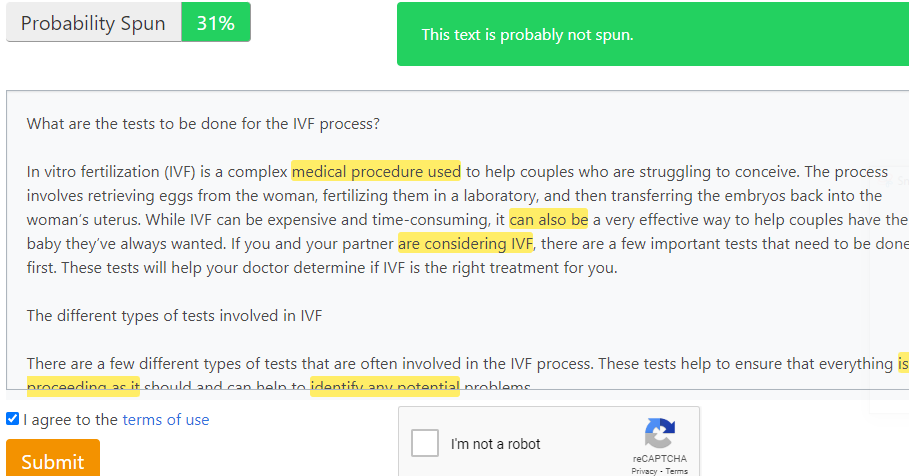
In vitro fertilization (IVF) is a complex medical procedure used to help couples who are struggling to conceive. The process involves retrieving eggs from the woman, fertilizing them in a laboratory, and then transferring the embryos back into the woman’s uterus. While IVF can be expensive and time-consuming, it can also be a very effective way to help couples have the baby they’ve always wanted. If you and your partner are considering IVF, there are a few important tests that need to be done first. These tests will help your doctor determine if IVF is the right treatment for you.
If you’re considering in vitro fertilization (IVF), you may be wondering what tests are involved in the process. It’s important to remember that each person’s situation is unique, so your fertility specialist will tailor the testing to your specific needs. That said, there are some common tests that are often part of the IVF process.
There are a few different types of tests that are often involved in the IVF process. These tests help to ensure that everything is proceeding as it should and can help to identify any potential problems.
Some of the tests that may be involved in IVF include:
If you’re considering in vitro fertilization (IVF), you may be wondering what tests are involved in the process. Here’s a rundown of the tests that are typically done prior to starting IVF treatment.
Your first step will be to meet with a fertility specialist to discuss your medical history and whether IVF is right for you. If you decide to move forward with treatment, the next step will be to have some tests done.
One of the most important tests is an ovarian reserve test. This test measures the amount of eggs you have left in your ovaries. The results of this test will help your doctor determine how likely you are to respond to IVF treatment.
IVF is a big decision, and it’s important to be as prepared as possible before beginning the process. Here’s what you can expect during and after the testing process:
Before starting the IVF process, you’ll need to have a few tests done. These tests help to determine if you’re a good candidate for IVF and also help to assess your overall health. Your doctor will likely order blood tests, a vaginal ultrasound, and possibly a hysteroscopy.
The blood tests help to check your hormone levels and see how your ovaries are functioning. The vaginal ultrasound allows your doctor to get a better look at your uterus and fallopian tubes. And the hysteroscopy allows your doctor to take a closer look at your uterine lining.
After the testing is complete, your doctor will review the results with you and decide if IVF is the best course of treatment for you. If so, they’ll develop a treatment plan tailored specifically for you.
During the IVF process, you’ll be closely monitored by your doctor. You’ll likely have frequent blood tests and ultrasounds to check on your progress. You’ll also be given medication to help stimulate egg production.
The IVF process is a lengthy and expensive one, but it can be an extremely worthwhile investment for couples who are struggling to conceive. There are a number of tests that need to be done in order to determine whether or not IVF will be successful, and it is important to consult with a fertility specialist to see if this is the right option for you. With the help of modern medicine, many couples are able to have the children they always dreamed of.

